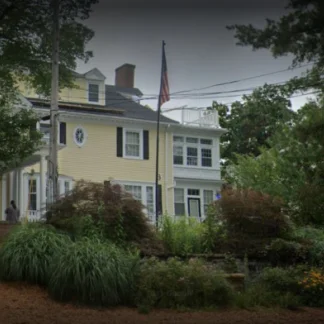Community Counseling - Attleboro Clinic
Community Counseling – Attleboro Clinic is a private rehab located in Attleboro,...
Located in Norton, Massachusetts, North Cottage Program- Halfway House provides alcohol and drug rehab services to men and women. They are a long-term residential facility that can house up to 65 residents at a time.
North Cottage Program- Halfway House provides person-centered treatment. Services include:
Residential This program takes place within the halfway house. Participants stay for up to 180 days and are assigned a personal counselor who also serves as their case manager. Each person meets for individual therapy for one hour a week. Group therapy is held for a total of five hours a week. Classes are based on a wide variety of topics such as cultivating life skills, relapse prevention, managing triggers, emotional regulation, trauma, relationship skills building, same sex orientation issues, ex-convict issues, and more. Each week, residents may also participate in 12 Step programming. Other self-help meetings within the community are held regularly and clients are able to participate in those meetings as they see fit.
Contact us for more information: (508) 285-2701

Connect with North Cottage Program - Halfway House by calling their admissions team directly.
(508) 285-2701 Website Get DirectionsTrauma therapy addresses traumatic incidents from a client's past that are likely affecting their present-day experience. Trauma is often one of the primary triggers and potential causes of addiction, and can stem from child sexual abuse, domestic violence, having a parent with a mental illness, losing one or both parents at a young age, teenage or adult sexual assault, or any number of other factors. The purpose of trauma therapy is to allow a patient to process trauma and move through and past it, with the help of trained and compassionate mental health professionals.
Community Counseling – Attleboro Clinic is a private rehab located in Attleboro,...
Justice Resource InstituteI is a private rehab located in Attleboro, Massachuset...
Justice Resource Institute – Mental Health is a private rehab located in Attlebo...
Justice Resource Institute – Cohannet is a private rehab located in Taunton, Mas...